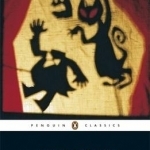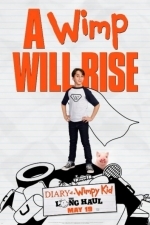
Bible Gateway
Reference and Lifestyle
App
Take the Bible with you wherever you go. The Bible Gateway App is the OFFICIAL and FREE mobile Bible...

PocketSword
Reference and Book
App
PocketSword is a Bible Study app for the iPad, iPhone & iPod touch (iOS 8.0 and above) that is built...
BankofMarquis (1832 KP) rated Sisu (2023) in Movies
Dec 4, 2023
SISU tells the story of the waning days of WWII in Finland where a lone man has left the death and destruction of war behind to live a life of solitude. Into his world come some retreating NAZI’s who (to their detriment, they will soon find out) decide to NOT leave this lone man alone.
Chaos (and violence) ensues.
A variation of the “Man with No Name” type of action film that pits this lone person who just wants to be left alone against a group of thugs, SISU (a Finnish word that has no direct translation but roughly translates to “persevering against tremendous odds”) generates a fun action/revenge flick that is extremely violent…and extremely implausible (but that’s part of the fun).
While this is a Finnish film, all of the actors/characters speak English (except when the Nazi’s speak German), so there is no translating needed.
Jorma Tommila (a veteran Finnish actor that has no U.S. credits that I could find) is stoic, rugged and damned determined as the nameless loner (he gets named about half-way through the film) that perseveres and this is the best part of his performance. His sparkling blue eyes constantly seem active and alive even though the rest of his face is stoic and his body is bruised, bloodied, beaten and mud-covered. His internal resolve shines through in his eyes and really holds the film together well.
Aksel Hennie (who you might know as Alex Vogel one of the Astronauts that is in the ship that turns back to get Matt Damon aka THE MARTIAN) as the Head Nazi is quite good and just as determined to use his men as fodder in his vendetta against the nameless man while Jack Doolan (Horse Tommy in THE BOYS) is ruthless as his main henchman and Mimosa Willamo (the Finnish TV series DEADWIND) is strong and determined as a prisoner held by the Nazis.
Director Jalmari Helander (again, no U.S. credits that I can find) does a wonderful job of keeping the action moving and the choreography of the piece simple (you know where everyone is at all times, so when something comes out of nowhere, you have a pretty good idea as to who/what it is). He does ratchet the violence up to a Tarantino-John Wick- The Equalizer level, so if you are squeamish, this film is not for you.
But, if you are into action films, then…hoo-boy….is SISU a film for you!
Letter Grade: A-
8 stars (out of 10) and you can take that to the Bank(ofMarquis)
Sass Perilla (36 KP) rated The Master and Margarita in Books
Aug 9, 2019
Firstly, I didn’t intend to write an essay on this novel. However, once started I found I had a lot to say, and the more I thought about the plot and characters, the more ideas and parallels were sparked, so I am hopeful that the verbosity of this review can be forgiven.
At the risk of sounding both ignorant and uncultured, I found this novel (at least at first) bloody hard slog; not least because the Russian characters have three names, plus a nickname, plus a pun on their name (none of which work particularly well in translation and all of which sound rather similar to the English untrained ear). As an example- Ivan Nikolaevich Ponyrev (who seems to be referred to by any and all of these names) is also known as “Homeless” and “the poet” is a key character in the opening section of the novel. To further demonstrate: there are 17 different names that start with A that are used to refer to 15 different characters with Andreyevich used as the middle name of a bereaved uncle, who makes a journey from Kiev after his nephew is beheaded in a freak tram accident- and Andrey the buffet manager at a Moscow theatre. Clear as mud right? And that is before starting on similarly named characters with the initials M, P, L and S! At my last count there were 45 distinct characters, and I am fairly sure there will be some that I have missed. Hence, I did a lot of re-reading to work out exactly who was doing what to whom.
Additionally, I would suggest you need to be wary of the different translations. The distinct changes in meaning are subtle but important. To triangulate I had three versions at my disposal: Hugh Aplin’s translation (available for free on Kindle), the audiobook version translated by Richard Pevear and Larissa Volokhonsky (which I listened to simultaneously when reading the book to come to my own interpretation, and the subtitles for the Russian TV miniseries from 2005 when I gave up trying to work out who was who from name alone!
So those were my “technical” issues (if you like) with engaging with this novel, and this lack of clarity and understanding (and my own lack of contextual knowledge of Stalinist Russia) meant I missed many of the (what I am sure are hysterically funny to those in the know) satirical jokes in the opening section. That said, the random action and quick changes of focus, undercurrent of chaos in Moscow despite entrenched hierarchal structures and clear threat that (any) one could go missing at any time, for an unclear reason gave a clear insight into the mind and fears of a 1930s Russian citizen. No wonder it was available only in censored form for so long.
Despite these hardships, there were some genuinely laugh out loud moments in the first Moscow based part of the novel. The citizens have not lost their individuality, as they scrabble and fight for bank notes in the theatre, which are later revealed to be worthless. Nor have they lost their sense of pride and vanity, which we see in the female theatre goers, so desperate to attain the fashionable French couture (which later literally disappears from their bodies leaving semi-naked citizenesses desperately trying to cover themselves in a scene reminiscent of “Allo Allo” meets “Benny Hill”). When Professor Woland says his show will “expose” what the locals have failed to realise is that it is their (moral) shortcomings that are about to be revealed. The message is clearly, that no government can successfully legislate against human nature.
Oooh- and another fun fact, apparently Woland (later revealed- or perhaps is implied- to be Satan) was the inspiration to the Rolling Stones 1968 hit “Sympathy for the Devil”, well at least that is what my Google-Fu tells me.
Obviously, there were substantial hurdles to leap, however, I found by the second half of the novel, when we finally meet the eponymous characters, I had got in to the swing of things and begun to embrace the farcical surrealism of the novel.
The second “book” marks a change in tone, although it continues to cut away to scenes of Jesus’ sentencing by Pilate and execution (here known in the Aramaic form Yeshua). Ironically it is these scenes that are the most “real” and substantially human, as Pilate’s decision weighs head achingly heavily on him throughout. The Master and Margarita seem to be the only two characters fully invested in the authenticity of literature, and serve as a counterpoint to the heavily censored “monstrous” writing of Ivan and the rest of the writers’ union Massolit, more interested in fine dining and what their positions can do for them then the production of quality writing.
And it is Margarita’s journey of discovery and liberation from the stodgy, miserable societal expectations of that leads her back to her Master. Bulgakov mixes classical myth, Russian folklore and Bible stories to give us an impression of the timelessness of the central romance. As the worlds of communist Moscow and the inner worlds of the Master and Margarita collide, we are informed of the former’s desire to excuse all magic (and mischief) as the product of mass hypnosis, when the latter (and the reader) are fully aware of the spiritual significance and dimension of the events.
Clever, astute and in places laugh out loud funny, this novel none-the-less requires a level of dedication from the non-Russian speaking reader. Worth a read? Yes. Worth a re-read? Maybe not.

Quran Kareem 13 Line for iPhone & iPod
Book and Education
App
SHL info systems presents “ The most advanced Quran application ever made for a touch screen...

Biblia de Estudio y Audiolibro
Book and Reference
App
This Reina Valera Bible has been carefully made by believers for believers willing to have a closer...

Italian <-> Portuguese Slovoed Compact talking dictionary
Reference
App
#1 DICTIONARY TECHNOLOGY IN THE WORLD 43 000 entries and 10 000 Italian audio pronunciations...

English Spanish Dictionary C.
Reference and Education
App
USERS LOVE IT! 5 STARS “The synonyms allow me to quickly suggest more appropriate words to my...
Gareth von Kallenbach (980 KP) rated Diary Of A Wimpy Kid: The Long Haul (2017) in Movies
Jul 11, 2019
Headed cross country to their MeeMaw’s 90th birthday, it’s a 4-day haul to Indiana, and Mom has banned all electronic devices.
At least from an adult perspective, I can understand the premise, seeing as the kids are always up to their ears in iPads and Minecraft these days, and having a “conversation” can be like pulling teeth. However, again from an adult perspective, this movie might have been better if the characters HAD been up to their ears in iPads and Minecraft for the trip.
There was lots of bathroom humor, which did seem to pull some laughs from my 8-year-old son, although maybe not as many as might have been expected (some of it, thankfully, was still over his head), but just had me shaking my head and wondering what has happened to good clean humor?
Greg’s main goal throughout the Long Haul is trying to erase or at least overcome his accidental internet sensationalism caught when he is filmed freaking out over a diaper he finds while playing in a ball-pit. He continues to try to re-route the family trip in order to get himself into a video with (what he sees as) a “famous” gamer who goes by Mac Digby, who will be at a convention in Indiana “only two inches away” from MeeMaw’s when looking at the map. His brother Roderick wants to become famous by drumming along in a video game and Greg manages to re-program the GPS in order to direct them closer to the gaming convention.
Along the way, they stop at a county fair and the youngest Heffley, Manny (played by twins Dylan and Wyatt Walters) manages to win an adorable baby piglet, who might honestly have the best role in the film. Who doesn’t like baby pigs?
There are more hijinks along the way in some sort of feud with another family, and in what might be the best part of the film, an homage to Hitchcock’s “Psycho”.
All in all, though, something is seriously lost in translation between the popular Jeff Kinney kids novel that the movie is based on, and this film. Previous installments of the Wimpy Kid movies have not been nearly as unpalatable to me. My son says that he likes this one, but even he says, “the book was better” and he’s only 8.
Between the poop, pee and puke “humor” and the never addressed or resolved lying of the kids and even dad, it’s not a movie I could really appreciate.

Turkish -> Russian Slovoed Compact dictionary
Reference and Education
App
#1 DICTIONARY TECHNOLOGY IN THE WORLD 8 600 entries The most reliable dictionary content from the...


